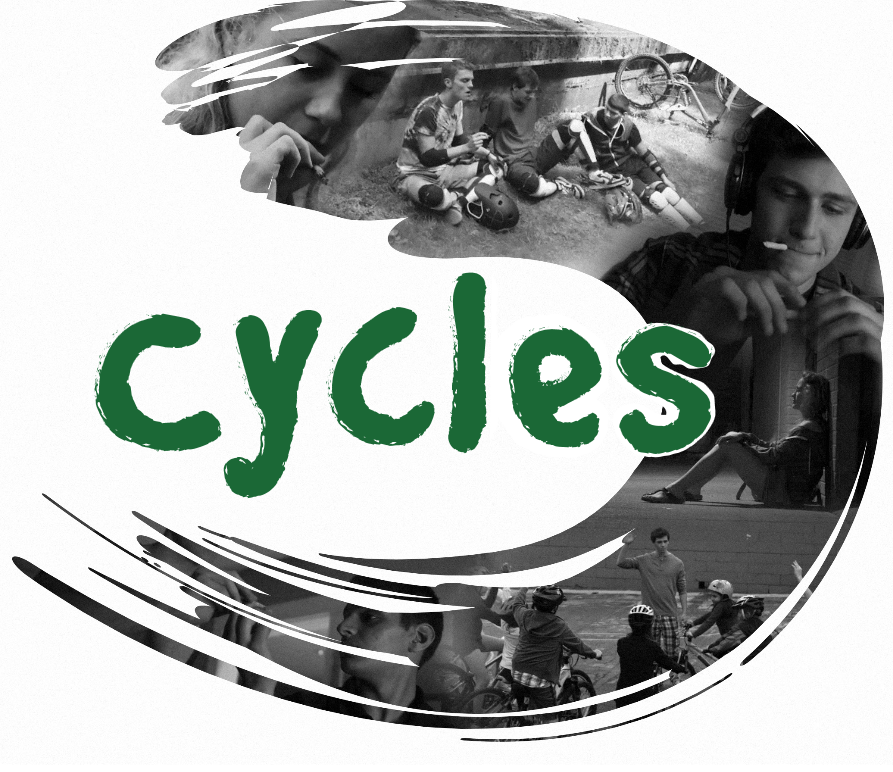“The film encourages students to come to their own conclusions about marijuana use through showing a variety of situations rather than just ‘telling them how to think.”—Teacher
“….the video stimulates conversation because it is so powerful. So in all honesty the video did most of the work and I just kept the conversation going, changing its direction when needed and appropriate and prompting where I could.”—Substance use counselor
Teens need opportunities to talk openly and honestly about cannabis (marijuana). This is the thinking behind a new, award-winning classroom resource called CYCLES, developed by researchers at the UBC School of Nursing and based on studies involving youth in three BC communities.

The goal of CYCLES is to help engage young people in productive discussions involving decision-making and cannabis use. The resource features a locally produced short film (28 minutes) about two fictional high school students and their relationships with cannabis. There is also a facilitator’s guide containing lesson plans, teaching tips, student handouts, and quick facts about cannabis use. Together the classroom materials support self-reflection and dialogue about factors that can influence a teen’s choices to use—or not use—cannabis or any other drug.
Facilitators of the 50-minute module (or longer if a deeper discussion is desired) do not need to be drug experts. Their role is simply to guide a thoughtful class discussion, whether students are experienced with cannabis and its effects or not.
“Meaningful dialogue with young people about marijuana use can translate into informed decision-making,” say the resource’s creators. In other words, talking things out may make frequent users consider cutting down on how often they toke up, and it may delay or deter other students from trying cannabis in the first place.
A recent survey of BC students supports the call for open, non-judgmental conversations in schools about cannabis and other drugs. Teens who are able to discuss such issues with parents, teachers and other adults are more likely to make healthier decisions. Rates of substance use among students have been declining for a decade, says McCreary Centre Society’s 2013 Adolescent Health Survey. The vast majority of students in Grades 7 through 12 said they had never tried cannabis (74%), and many of those with experience reported waiting until they were at least 15 before first experimenting with the drug. Eight percent of students reported using cannabis on the weekend before the survey was taken, down from 12% in 2008.
“Judging young people for their choices regarding marijuana is not helpful,” reads a CYCLES footnote. “Rather, engaging in meaningful discussion contributes to healthy dialogue.”
For more information, check out the CYCLES resource on the CARBC website. While the CYCLES guide is currently published in English only, the video is available with French subtitles. Student worksheets will soon be available in French. A script of the video is also available.
Author: Nicole Bodner, Centre for Addictions Research of BC
**Please note that the material presented here does not necessarily imply endorsement or agreement by individuals at the Centre for Addictions Research of BC.



Hi Simon, all the links seems to work on my end. Can you let me know what link in particular you are referring to so I can look into it?
Thanks for this – it looks great from the script but the videos did not load through the site linked in the email.
Thanks.
Simon Tuffin M.Ed. Student Services (Counsellor) Pacific Christian Secondary School 654 Agnes St. Victoria, B.C., V8Z-2E6 Ph: 250-479-4532 (117) Fax 250-479-3511